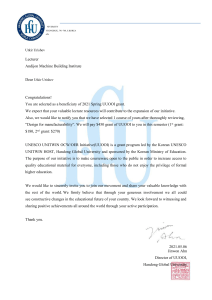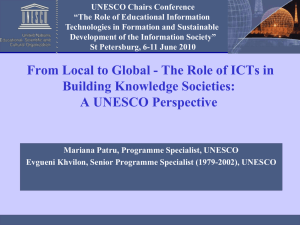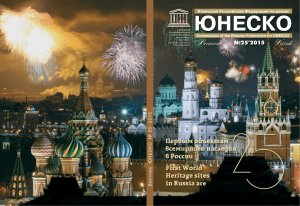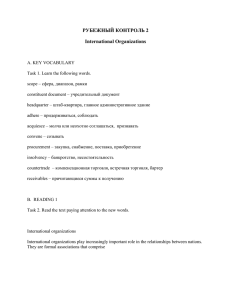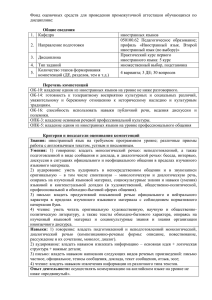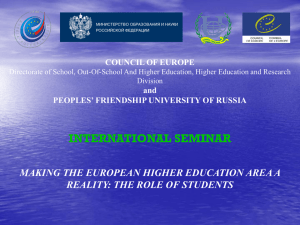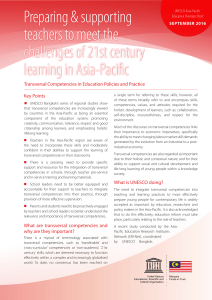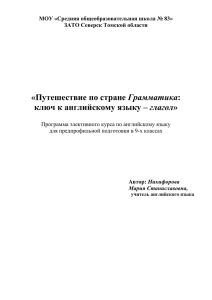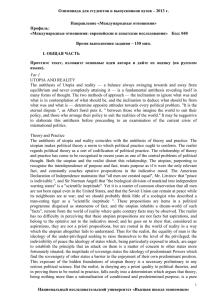unesco
реклама
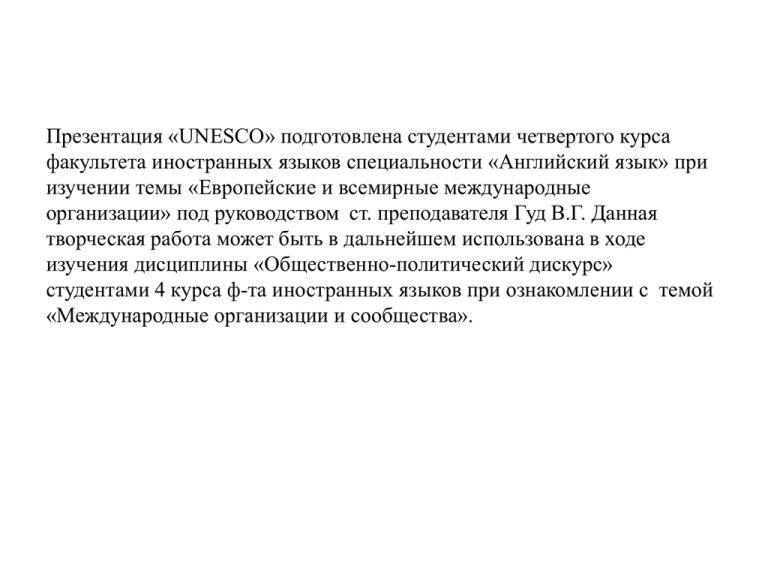
Презентация «UNESCO» подготовлена студентами четвертого курса факультета иностранных языков специальности «Английский язык» при изучении темы «Европейские и всемирные международные организации» под руководством ст. преподавателя Гуд В.Г. Данная творческая работа может быть в дальнейшем использована в ходе изучения дисциплины «Общественно-политический дискурс» студентами 4 курса ф-та иностранных языков при ознакомлении с темой «Международные организации и сообщества». UNESCO • Purpose is to contribute to peace and security by promoting international collaboration through education, science, and culture in order to further universal respect for justice, the rule of law, and human rights along with fundamental freedom proclaimed in theUnited Nations Charter. UNESCO • Aim is "to contribute to the building of peace, the eradication of poverty, sustainable development and intercultural dialogue through education, the sciences, culture, communication and information". UNESCO • As of October 2011, UNESCO counts 196 member states and 8 associate members. Some members are not independent states and some members have additional National Organizing Committees from some of their dependent territories. • UNESCO pursues its objectives through five major programs: 1. education 2. natural sciences 3. social/human sciences 4. culture 5. communication/information • • • • • UNESCO Projects sponsored by UNESCO include: literacy; technical, and teacher-training programmes; international science programmes; the promotion of independent media and freedom of the press; • regional and cultural history projects; • the promotion of cultural diversity; • translations of world literature; • international cooperation agreements to secure the world cultural and natural heritage (World Heritage Sites) and to preserve human rights, and attempts to bridge the worldwide digital divide. UNESCO • Formation - 16 November 1945 or 4 November 1946 • Type - Specialized agency • Legal status - Active • Headquarters - Place de Fontenoy, Paris, France • Head - Irina Bokova (Director-General of UNESCO HEADQUARTES Place de Fontenoy, Paris, France Director-General of UNESCO • Irina Bokova UNESCO • UNESCO has offices in many locations across the globe; its headquarters are located at Place de Fontenoy in Paris, France, now called the World Heritage Centre. UNESCO • UNESCO's field offices are categorized into four primary office types based upon their function and geographic coverage: cluster offices; national offices; regional bureaux (комитет, отделение); liaison offices (связующие) The General Conference • Is a gathering of the organization’s member states and associate members, in which each state has one vote. Meeting every two years, it sets policies and defines programme lines for the organisation. The Executive Board • The Board’s 58 members are elected by the General Conference for 4-year terms. It prepares the sessions of the General Conference and ensures that its instructions are carried out. The Secretariat • Consists of the Director-General and his staff and is responsible for the day-to-day running of the organization. Institutions • The institutes are specialized departments of the organization that support UNESCO's programme, providing specialized support for cluster and national offices. • International Bureau of Education (IBE) in Geneva • UNESCO Institute for Lifelong Learning (UIL) in Hamburg • UNESCO International Institute for Educational Planning (IIEP) in Paris (headquarters) and Buenos Aires (regional office) • UNESCO Institute for Information Technologies in Education (IITE) in Moscow • UNESCO International Institute for Capacity Building in Africa (IICBA) in Addis Ababa • UNESCO International Institute for Higher Education in Latin America and the Caribbean (IESALC) in Caracas • UNESCO-UNEVOC International Centre for Technical and Vocational Education and Training in Bonn • UNESCO European Centre for Higher Education (CEPES) in Bucharest • International Centre for Theoretical Physics (ICTP) in Trieste • UNESCO Institute for Statistics (UIS) in Montreal Projects • The organisation is concerned with numerous diverse projects including: • Projects and places of cultural and scientific significance ( international network of geoparks); • “Man and the Biosphere”; • “City of Literature”; • Languages and linguistic projects • Masterpieces of the oral and intangible herritage of humanity …
